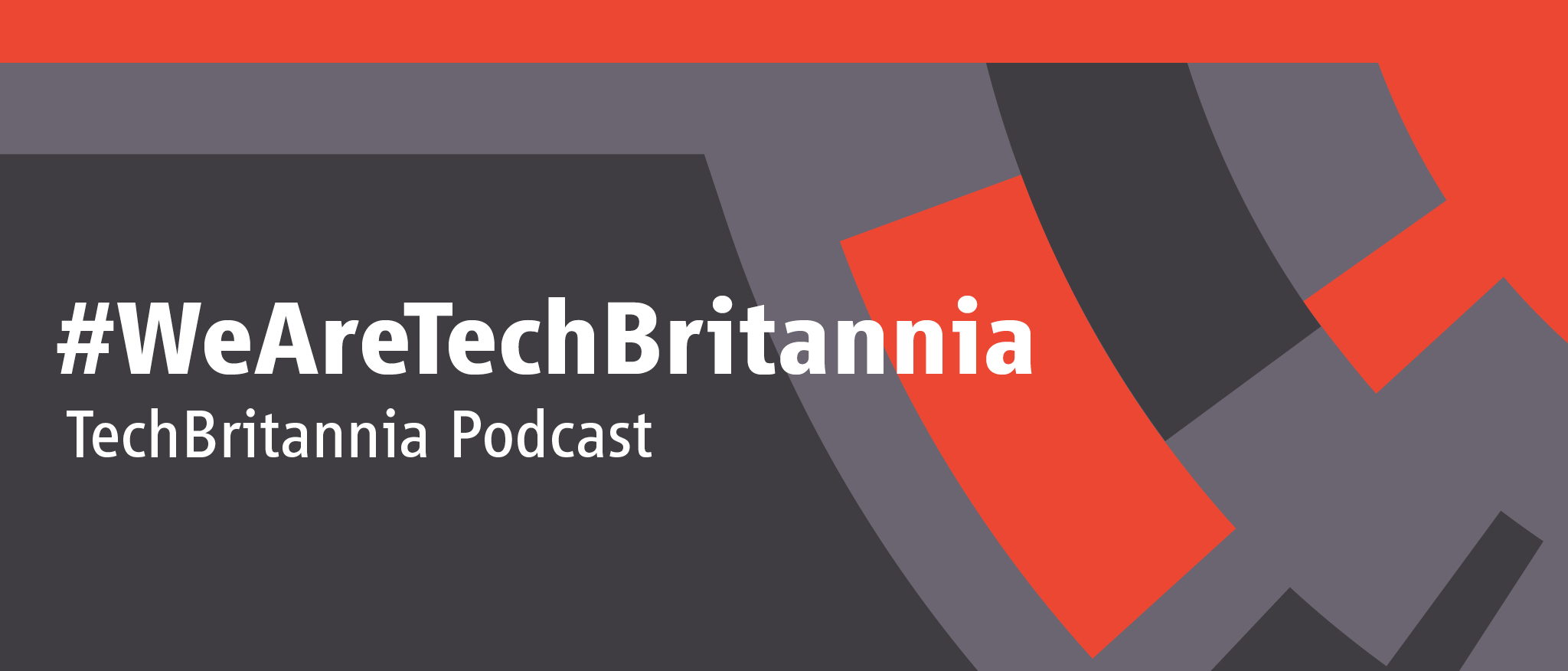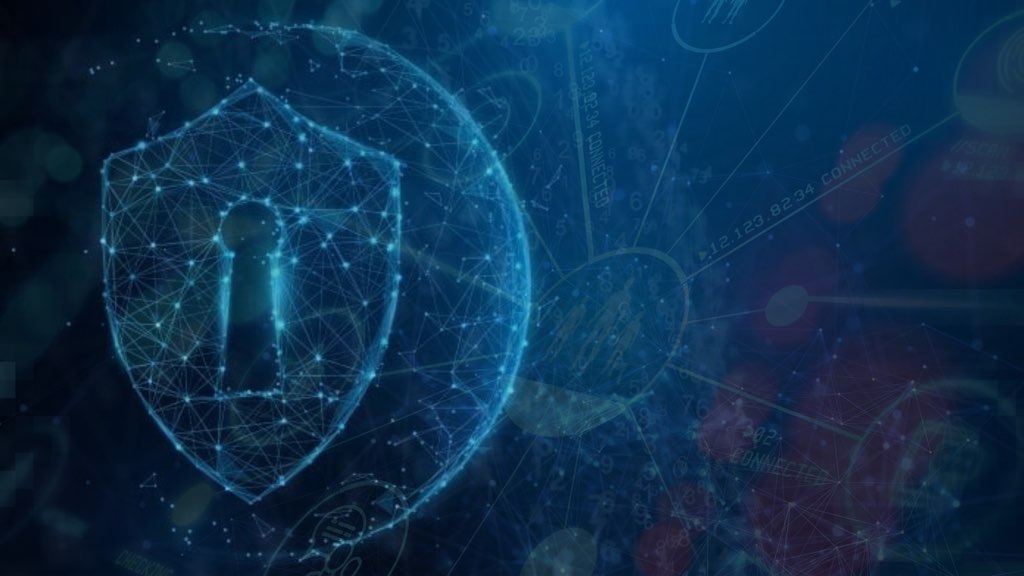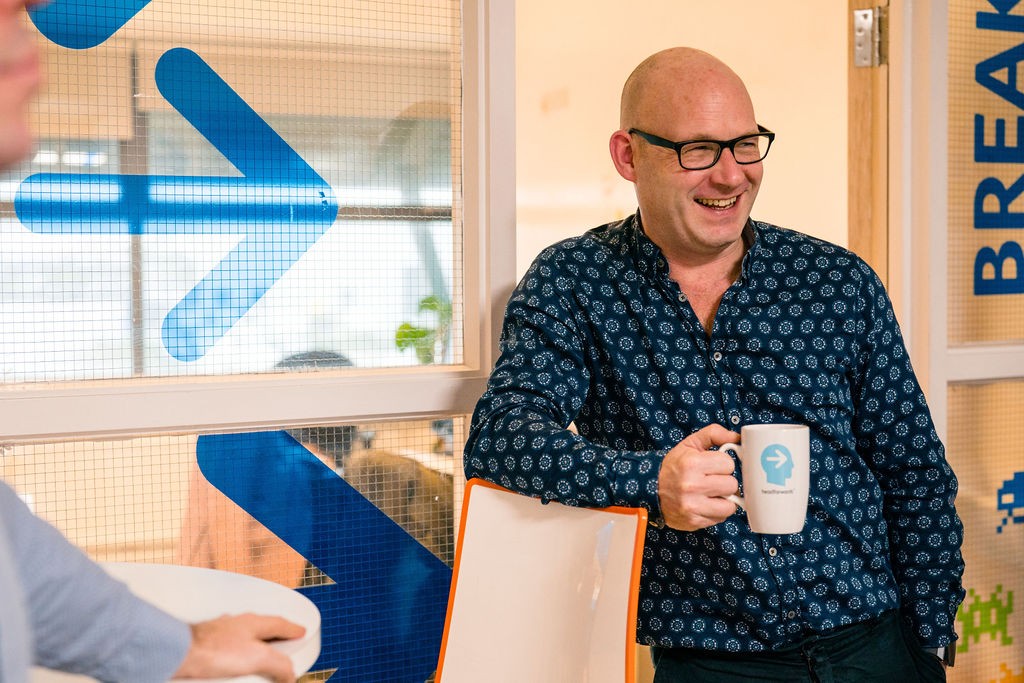Connecting the Cook Islands: Dr Ranulf Scarbrough, CEO, Avaroa Cable Ltd
Posted on 11th September 2020 by Jon Howell

Welcome to our TechBritannia podcast where we fly the flag for British technology. Each episode we will be talking with someone who is doing their bit to turn Britain into a global powerhouse of ideas and innovation. Our focus is not purely on British people but encompasses the multicultural mix of attitudes and philosophies that are prevalent in academic teams, startups, and established companies based in the UK.
Today we talk with Dr Ranulf Scarbrough who describes the difficulties he faced working on the project to connect the Cook Islands with fibre cables. Rose Ross, TechBritannia’s co-conspirator, discovers that the logistical problems are only part of the story, but the benefits for the local population could radically transform life on the islands and disrupt broadband pricing in the area.
So, over to Rose Ross, as she interviews Dr Ranulf Scarbrough about his role in connecting the Cook Islands to the internet via fibre cable.
Spotify
Also available on:
Interview transcript:
RR: Welcome everybody to the We Are TechBritannia podcast. This is a podcast that looks at what is happening in tech in Great Britain, and what Great Britons are doing in tech around the world. Here I am today via satellite with Dr Ranulf Scarbrough from the Cook Islands. Hello Ranulf, how are you?
RS: I’m very good, how are you?
RR: Very well indeed, very well indeed. So I know that you were saying earlier that there might be a little bit of patchy voice stuff, because you are going via satellite, and that’s actually part of the conversation that we’re having here, because you’ve got a very exciting project that takes you to the Cook Islands in Polynesia. Could you tell us a little bit about what you’re doing with Avaroa and the Polynesian project that you’re involved with?
RS: Sure. Back in countries like the UK we all now take broadband and fibre broadband for granted, and it’s easy to forget that some parts of the world are a little bit harder to reach. I had to look up where the Cook Islands were before I came here, and they sit in the middle of the vast Pacific Ocean. The Cook Islands is only 17,000 people in 10 islands in an area the size of Western Europe, and hence they’re connected for broadband and communications generally by satellite. That’s quite a challenge, broadband is incredibly expensive here, when it rains hard the signal drops out because of the attenuation by the rain. When there are cyclones, and we’re coming up to the cyclone season, quite often the service can get knocked out altogether.
We all know how important broadband is now to education, work, government, you name it. So the purpose of this project is really to try and address all of that, but it’s an expensive business. For the Cook Islands to go alone would probably cost to the sizable proportion of its GDP, but what’s novel here is you’ve got four Polynesian nations, French Polynesia, so Tahiti, Bora Bora, and places like that, the Cook Islands, Samoa, and Niue. I had to look up Niue. Niue is another country, four of them working together, to invest together, in a 3,600km fibre optic cable system, to bring us into the 22nd Century! So, that’s what we’ve been working on.
RR: Fantastic, and obviously we last met… in fact we originally met in Cornwall, which I think is rather fascinating because obviously Porthcurno was the start of the cable run out of the British Empire, back in 1873 apparently. So now 100+ years later, there’s a man from Cornwall doing the same thing in Polynesia.
RS: Yes absolutely, and of course it’s not just fibre cables that Cornwall is a big hub for, and Marconi did his first transatlantic transmissions, and of course what I was doing there, we had a pioneering fibre broadband project that was really the forerunner of a lot of what’s happened in the UK, where we were building out over 100,000 premises of fibre-to-the-home of full fibre, and we laid a cable to the Isles of Scilly. Actually a lot of that was really an inspiration for trying to connect some difficult places. But here is an order of magnitude harder again, I can tell you!
RR: I can imagine, I can imagine. So, how did you get involved with it, how did you rip yourself away from the Cornish coastline and end up on a very different coastline?
RS: In a tropical paradise, yeah it wasn’t that hard!
RR: I know, it was a tough decision, I can tell!
RS: What attracted me was really the scale and the ambition, and it’s a complicated project because it is transformational, but you’ve got four national governments trying to work together. French Polynesia is part of France, so the French government is involved as well. Both Niue and the Cook Islands are kind of realm countries of New Zealand, so the New Zealand government is an investor as well. There’s quite a lot of complexity in the partnership, we’ve got four stage operators in the consortium that are working to build the cable. The remoteness of the locations, part of the problem we’re trying to solve also makes the engineering so pretty challenging. You can’t just run down to Screwfix or get whatever kit you need, it takes a lot of planning.
I think the transformation change that this will bring, because we’re on the cusp of going live with this now, imminently, and in fact part of the system is already live between two of the islands, but the international connectivity, we’re just finishing up the testing, and about to switch on. The impact will be profound, it really will. So yes it’s very exciting, it’s a great thing to be a part of, good fun.
RR: Yeah, I can imagine. It was a very unusual… I mean one of the things that we always said about TechBritannia is we wanted to look at what was happening in the UK regardless of the nationality of who was doing it, but also to look at what Britons were doing overseas. So, I don’t think we could have found a more interesting project really. Totally unexpected!
RS: Well it certainly is informed by the leadership in terms of we’ve had in the UK I guess the last 20-years that I’ve been involved with it, taking broadband to a high proportion of the country as possible, and fibre broadband as well. Measuring the economic impact, the opportunities for small businesses, education, inclusion, all of these kinds of things, and it’s really that learning that I’ve brought a lot of that here, it’s helping build the programmes – not just to build the cable, but to ensure you realise the benefits of it. So there’s activity here, how government is going to change, health, the university campus that they’re building, how small businesses can start to put all the things that we take for granted, cloud services and many of these other things, into what they do. So, it’s going to be a very different place over the next couple of years.
The other piece is the economy, of course. As I mentioned to you, the Cook Islands has been completely isolated from COVID-19, there’s been no virus here at all, but the Islands has essentially been locked down with no-one coming in or out, and the economy here is 70 to 80 percent tourism, of course that’s gone to a complete full stop. I think they’re realising the fragility of that, and the importance of good internet to diversify their economy. I’m on the panel of what they call the Smart Initiative, so helping businesses to do new and innovative things, we just awarded the first grants from that. So, in its own sort of modernist way it’s really starting to transform the economy here, it’s an exciting time.
RR: Yes, so really looking at possibly one of the most ambitious and disruptive digital transformation projects in the world. Because as you say, this is totally transforming the country, not just a company which is what we’ve been focused on here in the UK, is what you can do with your business, access to cloud services and so-on…
RS: Of course, that’s been the other challenge here. So, we’ve had the cable to build and that planned, but of course alongside that we’ve been trying to build a commercial operator, and a commercial business. We had some funding to help build the cable, but not to operate it. So, we’ve got to build a company, build its products and services, build a team, sell those wholesale services to local retailers. Part of the programme has also been to liberalise the market here, open it up to competition, there’s a new regulator come in. So that experience from the UK, because we’ve had a competitive market in the UK for quite a long time now, what those competitive dynamics are like, how to make it really work, and how to make it thrive. It’s all good learning as well that’s really helping them go on that journey.
One of the key things here is the retail prices, and even before the cable has gone live, the threat of the cable against satellite, of course the satellite operators dropped their prices, and so we’re already starting to see a bit of the benefits of competition. So yeah, it’s quite a little microcosm of a competitive market emerging as well, so there’s that side of it, the business side which has been good too. Building that company as well almost exclusively from local people. I’m the one that’s parachuted in but everyone else we’ve skilled up locally to do it themselves, with tremendous pride I would say, as well.
RR: Very exciting. I’ve seen certainly from the information you’ve shared there’s lots of amazing pictures of the kids in their local costume, wonderful with their flowers and very bright colours, and they’re involved with the cable laying. So some lovely photoshoot opportunities, but you do very much get a sense that this is really about the people, not about the technology, that’s just helping making things better.
RS: Absolutely, and as I say actually those photographs, and the kids do look wonderful, but that’s just how they turned up on the day! They are bright, vibrant, and fun loving.
RR: That’s their Sunday best there.
RS: Yes, make a festival out of it.
RR: Yes, well it is an exciting time, isn’t it? It’s a very exciting time for everybody.
RS: Well I think that’s something that we certainly learnt from the projects we did in the UK and Cornwall. It’s one thing to do the engineering, and the engineering is challenging, but actually telling the story and sharing with people the engineering, how it works, what we’re trying to do, it is something that is exciting and is going to be transformational. People are really interested in how it works, how it’s going to change their lives, so that’s been an important aspect to the programme, as well.
RR: And what actually brought you to get involved with that, because it’s not the kind of job you just suddenly go, “Oh look, there’s something advertised in The Times”, to go and get involved with the project. It feels like either you found it or it found you.
RS: Well it found me somehow, I’m never quite sure how. The work that we did in Cornwall was quite transformational. It’s funny really because now a lot of work’s gone on globally about the importance of taking broadband and fibre to remote communities and so-forth, but we really did it first, and actually when we did it, it was pretty high profile. It’s interesting when you go around the world how many people have heard about that programme, the vision, and what it delivered. So somehow they found me, which is great really because it’s a fantastic project to be involved with, and I’ve really enjoyed it.
RR: Wonderful. So, this is going live very soon with the international connectivity for the fibre, that’s going to be another big celebration. What particular challenges do you think you’ve faced and had to overcome? You’ve talked about dealing with the four nations, all the different stakeholders that have been involved with that, which I’m sure that’s not going to be easy, because you need to find the common ground for everybody that the people are willing to get behind. But I would have thought from a technical perspective there’s got to have been quite a few moments when you’ve though, “Mm, this has gone a bit not quite the way we planned it!”
RS: Well actually in some ways the technology is the easy bit because I kind of know how to do that. The real challenge is the local stuff, I think in that things like landlords in the Cook Islands, there’s no land ownership, it’s all hereditary. So you can end up with land that’s owned by hundreds of people, and you want to put your cable across it to get from the road to the beach. There’s literally hundreds of people you need to negotiate with, some who aren’t even in the country. So, that’s been an interesting challenge.
We had to run a lot of consultations. We run consultations in the UK with our government and local democracy, but here they take it to a whole different level. You run a consultation meeting and everybody turns up, it’s the most exciting thing that’s happening. You sit there whilst they rant and rave at you in Maori, and you’ve no idea what they’re saying! At the end of it you can say, “No, that’s right, they were just getting it off their chest, they think it’s a really good idea”, hugely relieved. But I think taking the trouble to explain to people the benefits, the assurances, yeah, there are some things for children and online safety, and so forth, but there are ways to deal with that. So, I think the local side of it has probably been the biggest challenge for me, because the culture’s not familiar.
Partnerships are always complicated because you’ve got to drive consensus, but the consortium’s worked well. The biggest issue is that with French Polynesia obviously they speak French, the rest of us speak English, our consultants are French technical advisers, and the Samoan partners are Frenchmen. So every so often we do descend into French which is a little bit of a challenge, but we generally manage through that. I think as well a huge number of stakeholders, so our involvement from the Cook Islands is funded both by the Asian Development Bank, which is the regional development bank, and some funding from the New Zealand aid programme. They’re both excellent organisations, very supportive, but of course they do have some process and so-forth. The work in Cornwall was funded by the European Commission, so if you can handle the European Commission bureaucracy, after that anything is a little easier!
RR: So, you’re well road tested in that department.
RS: Yeah absolutely, record-keeping, asset registers and all that kind of stuff. So that’s actually been a very useful background. I think fundamentally here the challenge is, in telecoms it’s really all about making an investment and then getting the payback from the subscribers. But of course there’s not that many people here, so you’re trying to share the costs over those subscribers being conscious that the ambition is to dramatically improve affordability. So, trying to run a really lean operation that’s simultaneously high-quality, because you’re carrying pretty much the entire nation’s telecommunications, a big responsibility, but at the same time always being mindful that any costs you incur have got to be recovered back from citizens. So that is quite a challenge, but we’ve worked really hard on it and the pricing that we’ve now put out there looks like it’s already feeding into reducing prices, increasing speeds, and all those good things that we take for granted I guess.
RR: Fantastic. So, what’s next?
RS: Well I think we’re imminently going live, so that will be what I call our Eastern route, so that’s our international connectivity out through Tahiti, to Hawaii, to Los Angeles. So, a good fibre connection to the US. We then need to add westward connectivity through Samoa down to Sydney. So, that gives us some diversity as well, in case we had a problem with either route. There’s a bit of work to optimise our connectivity, get all our operational processes really efficient, and all the preventive maintenance. So, I think the next six months is about stabilising things and maturing our organisation.
But then we’ve put out a couple of white papers around what’s next. As I say, part of that is about making sure the nation seizes the opportunity, as it’s called, embeds the opportunity into health, into government, into small business operation, into education, and so-forth. We’re doing a bunch of work with the government on that at the minute.
The other white paper is about, so this cable took a long time to bring together, the different nations had talked about for a very long time before the stars aligned and the funding was found. But this will connect the two most popular islands in the Cook Islands, there’s another ten. So, what’s going to be the solution for those, they’re still on satellite at the moment. Can we find a way to connect those? Perhaps link up to the new Trans-pacific cable that’s coming through, Southern Cross NEXT, and provide some commercial opportunity through our cable as well, so we can bring further investment, further improved services to everybody really, so that’s probably the other big challenge. The populations there are that much smaller, the islands are that much more remote, their economies are that much more fragile, so it’s another order of magnitude of challenge.
RR: Yes, so when you light that cable up then, that’s just the beginning, isn’t it?
RS: Oh yes, absolutely there’s plenty more to do. The good news is, the cable itself is a twin-fibre 10 terabit system, so there’s 10 million megabits of capacity on it, so at least we know that will give us all the speed we need for definitely the 25 years of the life of the cable. That’s certainly very future proof.
RR: That sounds exciting, fantastic. So, we’re not going to be seeing you back in Cornwall just yet then I wouldn’t imagine. You’ve still got a few things to do.
RS: Well, we’ll see. I think my involvement runs until early next year, and then there’s a little bit of seeing what the country wants to do, because although they’re ambitious plans this is a challenging time everywhere, and it’s going to be a challenge to find the investment. I will be giving some consideration to what comes next. I’m sure there will be another exciting place to connect somewhere in the world!
RR: [Laughter] Watch out, I’ll be talking to you in six-months time with a new project in Antarctica or something! Although they may already have fibre, I don’t know.
RS: No, they don’t have fibre. It’s actually interesting because there was an article recently saying that the scientific community would really benefit from fibre, because of course the satellites don’t reach the pole, generally speaking they’re over the Equator, so they are very challenged for connectivity there. But of course it’s an expensive business laying cables, it takes deep pockets.
RR: You definitely need to take the thermals for doing that. It’s definitely going to be a change of environment going from one extreme to the other then, if that’s the case.
RS: I prefer somewhere warmer I think!
RR: Certainly, Antarctica sounds a bit brutal, doesn’t it? To be there for a long period of time. But hey, we’ll see, watch this space. Fantastic. Is there anything else you’d like to share about what you’ve been involved with, that you think our listeners might benefit from?
RS: Well I think it’s really interesting that the sort of ideas we’re working on here, the UK has been a real leader in this stuff in terms of taking broadband and fibre out to remote places. Having been involved with those programmes in BT, it’s quite a big political topic, and other people…
RR: Yeah, particularly now with COVID isn’t it? That’s kind of brought it all back up to the fore.
RS: That’s been absolutely the right thing to do. I think it’s important to realise how far ahead the UK is doing this kind of rural stuff, it is actually really leading. The one last thing I would say is of course, even though I ran many of the programmes across the UK, with the UK getting fibre to remote places, rather ironically I finally got fibre to my house in Cornwall! … last December! … by which time I’d moved here! But there is one thing I might come back for is my fibre-to-the-premise connection in the deepest darkest Cornwall, which is nice to know it’s there and ready to go back and utilise.
RR: When you need it, wonderful. Well, thank you so much for joining us, I love saying this on We Are TechBritannia, live via satellite from the Cook Islands. Who’d have thought we’d be saying that? It’s been an absolute pleasure to catch up with you Ranulf, thank you so much for making the time, and we look forward to hearing more about how things go, as this continues to have a massive impact on the Polynesian Islands that you’re in at the moment.
RS: Great Rose, I really appreciate the time. It’s been fun talking to you.
RR: Yes, likewise, thank you. And that was Dr Ranulf Scarborough, who is in the Cook Islands and is spearheading a project to get fibre out to the Polynesian islands. So, thanks again for that.
You’ve been listening to We Are TechBritannia, TechBritannia’s podcast where we look at what’s happening in tech in the UK, and also what Britons are up to in tech anywhere in the world, we’ve just proved.
Thank you very much, bye-bye now.





Leave a Reply
You must be logged in to post a comment.